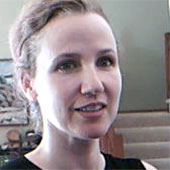Investing in Early Childhood
- Tweet

Children are born ready to socialize, and they begin honing social and emotional skills before they can talk. But learning depends on the input we give them, and some kids aren't getting the opportunities they need to achieve.
Babies are born socialites! Their social skills grow even before they can speak! Tweet this!As Nobel Prize-winning economist James Heckman has noted, there is a growing developmental gap between economically disadvantaged kids and children from more affluent backgrounds. Lower socioeconomic status is one of the most reliable predictors of poor self-regulation in young children, and poor self-regulation makes it harder to focus and get along with others at school. When kids begin schooling with these disadvantages, they are more likely encounter stumbling blocks, and veer off the path that leads to long-term success.
By contrast, the path is smoother for kids who start school with higher levels of self-regulation and social competence. Children growing up in stressful, lower income environments are less likely achieve this developmental head start, but when they do, their early abilities predict a brighter economic future.
A recent study is case in point. Back in 1991, researchers asked teachers to evaluate the social skills of more than 600 low-income kindergarteners. From these teacher ratings, each child was given a summary score, ranging from 1 to 5, with higher numbers indicating that a child showed more friendliness, cooperation, and helpfulness in the classroom. Nineteen years later, these same kids -- now adults in their mid-twenties -- were tracked down and interviewed. How had they turned out?
The answer was predicted by those early teacher ratings. For every 1-point increase on the 5-point scale of kindergarten social competence, kids had better odds of success. They were more likely to have graduated from high school on time, and more likely to have secured full time jobs. For each 1-point increase, a child had twice the odds of earning a college degree by the age of 25.
Conversely, each 1-point decrease on the 5-point scale was linked with worse adult outcomes -- like higher odds of getting arrested, ending up in public housing, or being on a waiting list for public housing.
So early childhood social competence bodes well for an individual's future, and predicts outcomes that benefit society as a whole. Can we create more of these low income success stories? The evidence in favor is compelling.
Experimental research suggests that carefully-designed social activities can help close the developmental gap for disadvantaged kids. In one study, a 12-week "Kindness Curriculum" improved the social competence of preschoolers who previously had been struggling. Other programs have reported similar gains for self-regulation and staying on task.
Then there is the long-term research, studies tracking the adult outcomes of children enrolled in preschool intervention programs like the Carolina Abecedarian project. Not only did these kids go on to earn higher incomes as adults, they are physically healthier in middle age, showing substantial improvements over their control-group peers. The savings to taxpayers -- in government services and reduced health costs -- means the program has more than paid for itself. Researchers estimate that the project has returned $2.50 for every dollar invested.
How do we bring these benefits to Memphis? Business leaders and policymakers need to get involved in the conversation, and explore new approaches to investing in early childhood. One promising new model for financing is the Social Impact Bond, also known as "Pay for Success." Programs get started with private capital, but sponsors are reimbursed by the government if target outcomes are reached. For more information on possible solutions, and the community impact of early socio-emotional development, please visit the Urban Child Institute website at www.tuci.org.
References:- Rhoades BL, Greenberg MT, Lanza ST, Blair C. (2011). Demographic and familial predictors of early executive function development: Contribution of a person-centered perspective. Journal of Experimental Child Psychology. 108(3):638–662.
- Bornstein M.H., Shin C-S., and Haynes O.M. (2010). Social Competence, Externalizing, and Internalizing Behavioral Adjustment from Early Childhood through Early Adolescence: Developmental Cascades. Dev Psychopathol. 22(4):717-35.
- Blair C. (2002). School readiness: Integrating cognition and emotion in a neurobiological conceptualization of children's functioning at school entry. American Psychologist. 57(2): 111–127.
- Denham SA, Bassett HH, Sirotkin YS, Brown C, Morris CS. (2015). "No-o-o-o Peeking": Preschoolers' Executive Control, Social Competence, and Classroom Adjustment. J Res Child Educ. 29(2):212-225.
- Jones, D.E., Greenberg, M., and Crowley, M. (2015). Early Social-Emotional Functioning and Public Health: The Relationship Between Kindergarten Social Competence and Future Wellness. American Journal of Public Health. e-View Ahead of Print. doi: 10.2105/AJPH.2015.302630
- Bierman KL, et al. (2008). Promoting academic and social-emotional school readiness: the head start REDI program. Child Development. 79(6):1802-17.
- Campbell F., Conti G, Heckman J.J., et al. 2014. Early Childhood Investments Substantially Boost Adult Health. 343 (6178):1478-1485.
- The Carolina Abecedarian Project. "Ground-breaking follow-up studies." The Carolina Abecedarian Project website. Accessed on 9/6/2015: http://abc.fpg.unc.edu/groundbreaking-follow-studies
- Conti G and Heckman J. (2013).The developmental approach to child and adult health. Pediatrics. 131(suppl 2):S133---S141.
- Flook L, Goldberg SB, Pinger L, Davidson RJ. 2015. Promoting prosocial behavior and self-regulatory skills in preschool children through a mindfulness-based Kindness Curriculum. Dev Psychol. 51(1):44-51.
- Gustafsson-Wright, E., et al. (2015). Identifying Education Outcomes for Social Impact Bonds for Early Childhood. Brookings Institution. 2015. Available at: http://www.brookings.edu/blogs/education-plus-development/posts/2015/02/13-education-outcomes-social-impact-bonds-early-childhood-gustafsson-wright-golden-aigner-treworgy
- Heckman, J. (2011). The Economics of Inequality: The Value of Early Childhood Education. American Educator, 35(1): 31-35, 47.
- Karoly, L.A., Rebecca Kilburn, M.R. and Cannon, J.S. (2005). Early Childhood Interventions: Proven Results, Future Promise. Santa Monica, California: The RAND Corporation. http://www.rand.org/pubs/monographs/MG341
- Tominey S and McClelland M. (2011). Red Light, Purple Light: Findings From a Randomized Trial Using Circle Time Games to Improve Behavioral Self-Regulation in Preschool. Early Education & Development 22(3): 489-519.

